Defending Military Veterans
If you are a veteran and have run into criminal legal problems, reach out to the attorneys at Ringstrom DeKrey. Both Bruce Ringstrom Sr. and Bruce Ringstrom Jr. are veterans of the United States military and have a special affinity for veterans charged with crimes. In fact, everyone at Ringstrom DeKrey has worked with veterans in criminal cases. We are prepared to defend our veteran clients with the full complement of skills, including:
Understanding the content of a veteran’s DD214
Working with the United States Department of Veterans Affairs (“VA”) on getting medical and other records
Assisting veterans in getting into the VA’s dual diagnosis program
Getting our clients into Veterans Court or other specialty courts
Using the statutes specific to veterans to maximize the chance of the best outcome
Preparing legal defenses that account for the specific experiences, training, and traumas that veterans carry
Understanding veterans often have particular needs when it comes to defending their criminal cases
Ringstrom DeKrey has the specific skills—and a particular motivation—to make sure that veterans get the best defense possible.
Facing Criminal Charges as a Veteran
Many veterans may experience psychological trauma, PTSD, substance abuse, or other issues that could result in legal troubles or criminal charges.
In this article, we’ll discuss several issues veterans could face when dealing with criminal charges. This resource focuses specifically on the criminal procedure and sentencing factors that apply to veterans and military personnel, as well as the impact of a criminal conviction on veteran's benefits.
Both North Dakota and Minnesota have established special “Veterans Treatment Courts.” These courts are not a get-out-of-jail free card, but rather offer veterans a chance to get the help they need before entering the often revolving door of the prison system. Veterans Treatment Courts tend to focus on rehabilitation and treatment, rather than punishment.
Judges in these courts are well-versed in veteran issues and the special challenges that come with military service. A representative from Veterans Affairs may also attend these proceedings to help explain the veteran’s specific situation to the judge.
What You need to know about Facing Criminal Charges as a Veteran
-
The short answer is sometimes. Unfortunately, the type of charge a veteran is facing can negatively impact their ability to receive VA benefits.
Veterans who are serving jail time for misdemeanors may seek something called a VA Apportionment. Under this program, the VA will give some or all of the money to the veteran's family. However, if the veteran has been convicted of a felony, apportionment is unavailable.
VA Disability Compensation: If you are convicted of a felony and serve 60 or more days in jail or prison, your VA Disability Compensation will be reduced. However, once you are released from prison, your compensation payments may be reinstated.
VA Pension: If you are convicted of a crime and serve 61 days or more in jail or prison, you will stop receiving VA pension benefits. Once you are released, you may reapply for your VA Pension.
VA Medical Care: The VA will not remove your right to medical care just because you have been convicted of a crime. However, while you are incarcerated you will only be able to receive medical care from the jail or prison health care system. When you are released from prison, you will be able to continue to receive VA healthcare.
VA Education Benefits: Education benefits are available to veterans serving prison time, but the type and amount of benefits will vary depending on the nature of your conviction.
-
In most contexts, your attorney will argue for what sentence they believe is appropriate.
Just like any other work history, your military service may be an important fact about you that your attorney should share with the judge in determining your appropriate sentencing.
However, in the federal system, veterans may not be able to use their military service as evidence to be considered in sentencing, depending on the circumstances of the case.
-
The VA has set up a program called the Healthcare for Re-Entry Veteran's Program (HCRV) to help veterans who are leaving prison get back on their feet. This program provides counseling and reintegration services to qualifying veterans.
Ringstrom DeKrey can help connect you with HCRV representatives upon your release.

